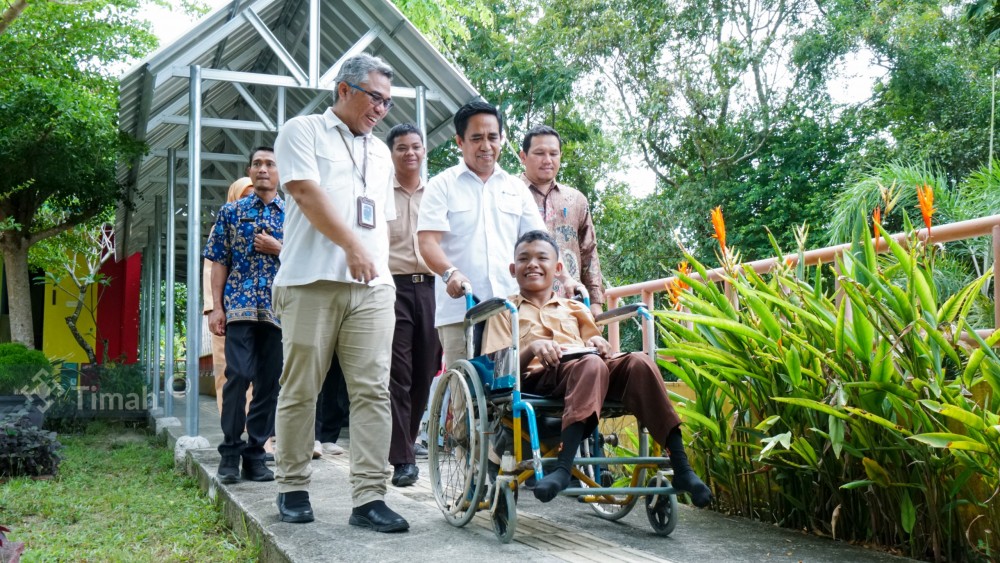
PANGKALPINANG – PT Timah Tbk remains committed to supporting inclusive education programs. Through its corporate social and environmental responsibility initiatives, PT Timah implements educational, economic, and empowerment programs for people with disabilities.
As a member of the MIND ID mining industry holding, PT Timah has developed various programs to support education for individuals with disabilities. These include the Timah Mengajar program, support for education at the YPAC Foundation in Pangkalpinang, and the Difabel Entrepreneur School program at SLB Negeri Mentok.
Through the Timah Mengajar program, PT Timah provides training for teachers and parents on educating children with special needs. In 2024, a total of 175 special education teachers and 269 parents of children with special needs participated in the program.
To enhance skills, competencies, and economic opportunities for people with disabilities, PT Timah collaborates with SLB Negeri Mentok in West Bangka to run the Difabel Entrepreneur School program.
As part of this initiative, students at SLB Mentok receive training in batik-making and juice production, guided by teachers and professional instructors at their school.
Through these empowerment initiatives and education support programs for people with disabilities, PT Timah aims to create a more inclusive and equitable education ecosystem for all children, including those with disabilities.
In carrying out these programs, PT Timah collaborates with local governments, communities, and educational institutions. This partnership is expected to foster a more inclusive and supportive learning environment.
PT Timah’s Department Head of Corporate Communication, Anggi Siahaan, emphasized the company’s role in providing education access for people with disabilities.
"PT Timah’s support for people with disabilities is not just part of our corporate social responsibility program but also a long-term commitment to creating a more inclusive environment," she said.
Beyond education, PT Timah also provides direct assistance, such as wheelchairs and other support tools, to help improve the quality of life for people with disabilities. (*)